

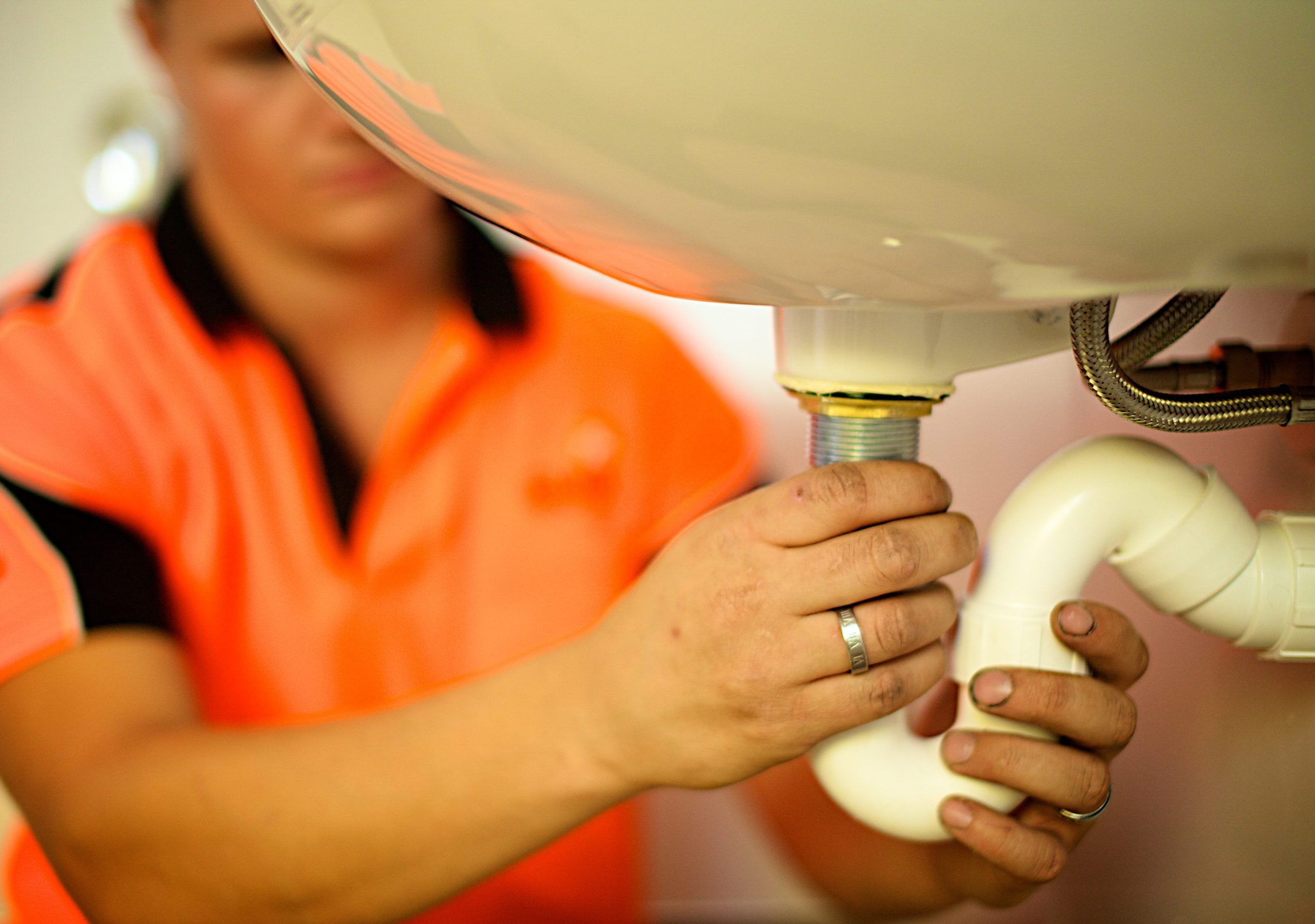
PLUMBING, GASFITTING & DRAINLAYING APPRENTICESHIP
Keen to keep active and work your mind at the same time?
Training in plumbing, gasfitting and drainlaying is the right balance for you.
Our plumbing, gasfitting and drainlaying (PGD) apprentices install and repair pipes, fixtures and fittings that supply water and gas, or alternatively remove waste and stormwater. This can be on large commercial construction projects, as well as small scale residential projects.

Career Opportunities
What can I do when I'm qualified?
Working in the plumbing, drainlaying and gasfitting industry can be a very diverse career. As they are part of both construction crews and responsible for the maintenance of buildings, plumbing careers are varied and differ by sector. You can work in various industries from construction to maintenance companies. Once qualified you could find yourself working in any of the following areas:
Residential
Your tasks could include bathroom installations maintaining or repairing hot water cylinders. You may be installing gas systems in houses, boats or caravans or redesigning hot water heating systems.
Commercial
You could be installing pipes and plumbing systems into new buildings, testing and certifying all gas appliances and gas lines in an apartment block.
Industrial
Working within industrial plants you could be installing pipes or wastewater treatment systems, or maintaining existing systems.
Questions about a Plumbing, Gasfitting & Drainlaying Apprenticeship
We know there can be a lot questions about apprenticeships. Have a look at our FAQs to find your answer. If we haven’t answered your question here, please get in contact so we can help you.
- Everyone, everywhere will always need the skills of plumbers, gasfitters and drainlayers
- Job variety is high – it’s not all about fixing toilets!
- Good career advancement opportunities
- You can choose to go into business for yourself
- Earn while you learn
PGD apprenticeships are 5 years (10,000 hours of practical work experience).
There is also an option of just doing plumbing and drainlaying (without the gasfitting) which is then a 4 year course.
You will work on the job with your host business during the week who will teach you the practical side. You will also attend a quarterly week-long block course where you learn the theory around your trade and carry out bookwork and assessments.
Your ATT area manager will support you throughout your whole apprenticeship, mentoring you and providing practical advice and help. to successfully get you through to completion.
Plumbers, gasfitters and drainlayers need to be:
- Great communicators - listening to your customers, understanding the problem and responding in an easy-to-understand and relaxed way are crucial
- Good problem solvers - you'll need to evaluate a situation, assess the options quickly and determine the proper course of action
- Physically fit - you'll need physical strength, agility and coordination. Working with tools, fixtures and plumbing systems requires good hand-eye coordination and manual dexterity. You will often be required to lift heavy items, climb ladders and stairs
- Be patient and accurate, with an eye for detail
- Safety-conscious
- Organised and able to follow instructions
- Good at working independently or in a team
Newly licensed plumbers, gasfitters and drainlayers usually earn $35 to $42 an hour.
Experienced plumbers, gasfitters and drainlayers can earn between $45 and $53 an hour.
A standard workweek is five eight-hour days. However, as with most construction careers, sometimes you have to work overtime and there may be periods when work is scarce.
Additional hours vary based on the sector and region where you work and the requirements of individual projects.
You may work outdoors in all weathers, and in conditions that can be dirty, messy, smelly, cold, wet, hot or confined.
You usually travel locally to job sites.
Your ATT area manager will arrange all your off-job training courses and make sure that you have completed all the pre-course requirements. They'll remind you when courses are coming up and chase you up to make sure you're ready!
Our ATT training manager keeps on top of any changes in your training requirements and lets you know about them.
Before you start, you will have had an interview with your host business. You will also have met with your ATT area manager, who will be your day-to-day contact.
Your area manager will have arranged all your paperwork and will have arranged for you to complete a basic site-safe and first aid course. They will also have arranged a start-up toolkit (free) and relevant basic PPE (boots, goggles, gloves etc).
When you arrive at your host trade business, they will meet with you, assign you a supervisor and your practical training will begin.
Your ATT area manager will check in with you after your first few days to make sure you have everything you need and answer any questions you may have. You then have regular catch-ups with your area manager to make sure you're on track, but you can also contact them at any point you do have questions or concerns.

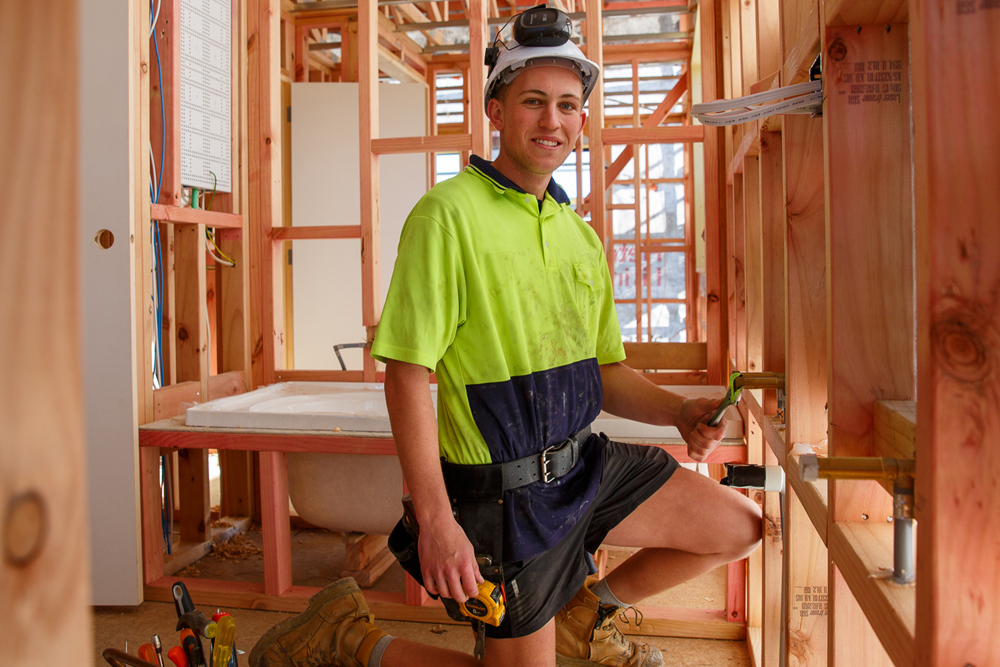
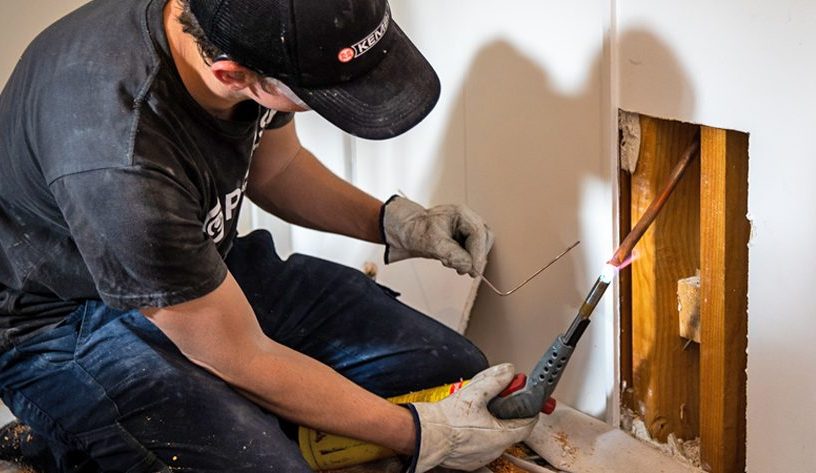
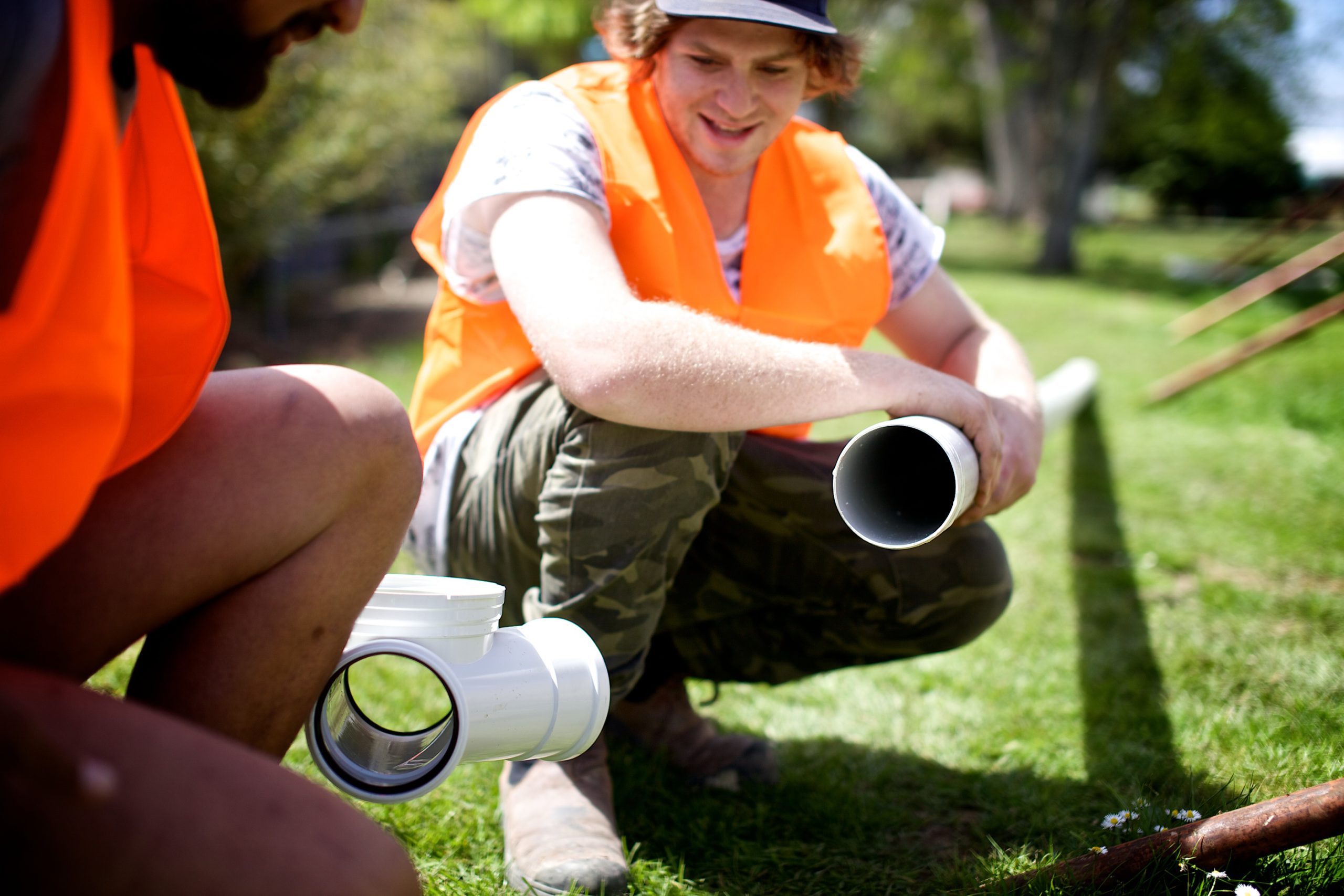
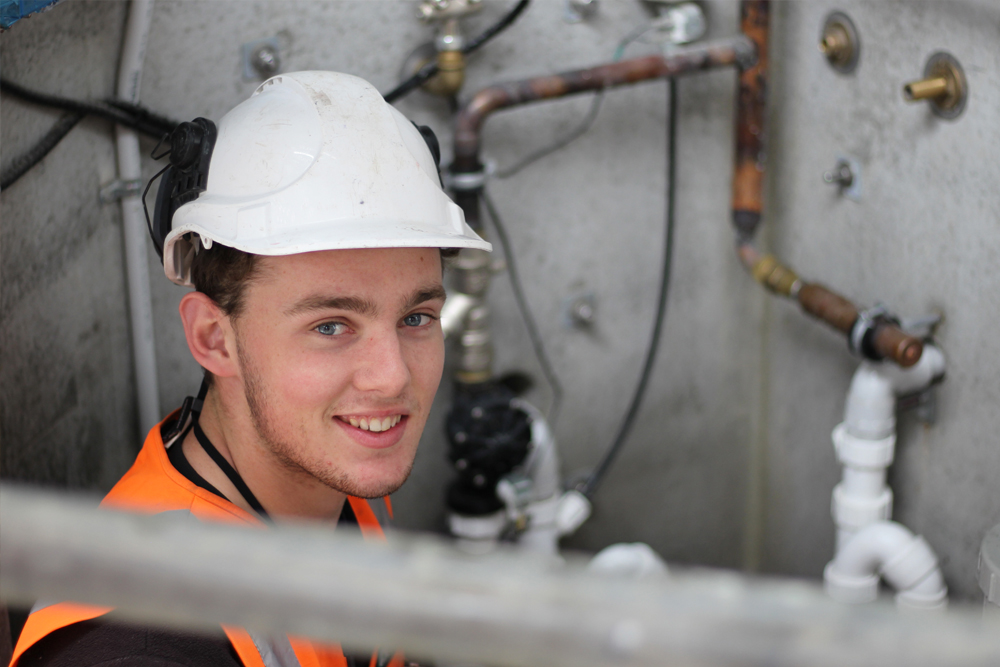
"Plumbing was a good choice for me because there's a massive variety of work and I get bored quite quickly. You're always moving around, from site to site doing different things, running gas pipes one day and then laying drains the next, there's always something different."
Eddie - ATT Plumbing Apprentice


